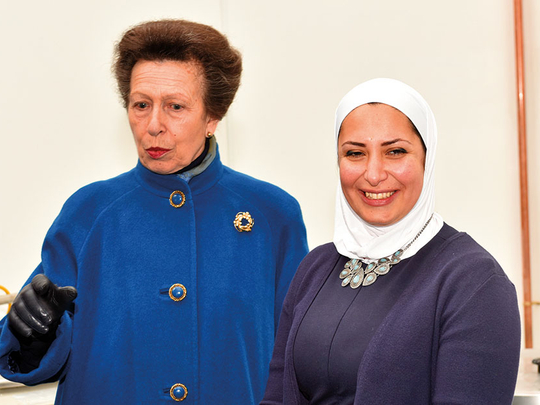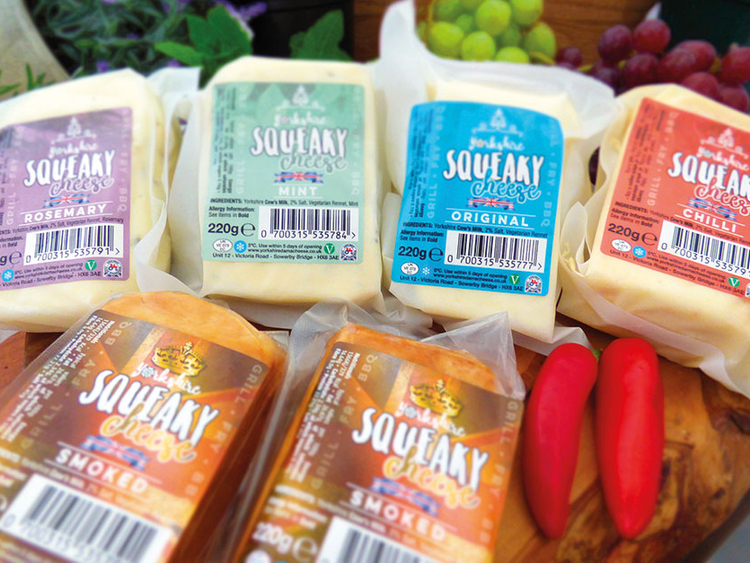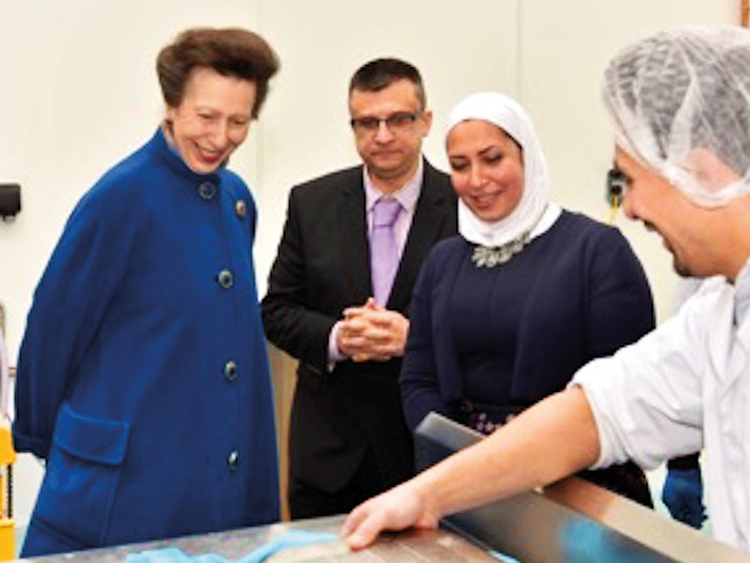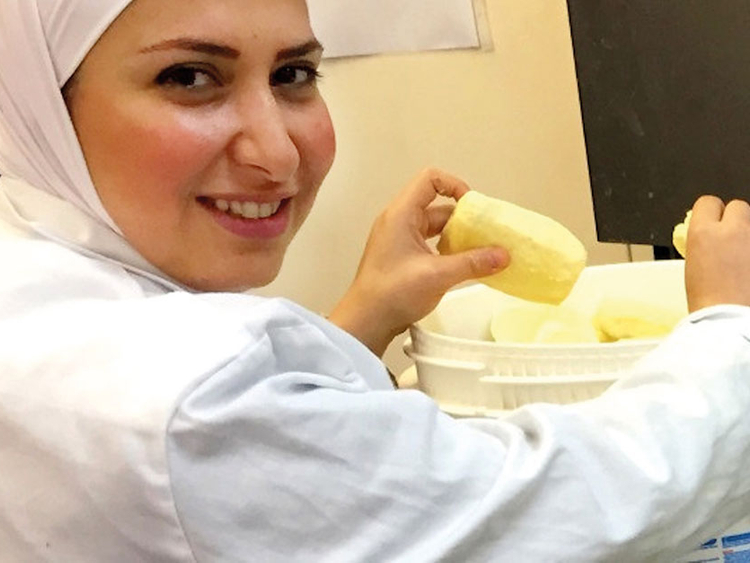
Madrid: The explosion hit too close to home. After two years of trying to live with the civil war waging around them, Razan Alsous and her husband Raghid knew there only one thing to do: Pack up and leave their Damascus-area home.
“It was July, 2012 and we were living on the outskirts of the city,” Alsous tells Gulf News. “The three children were small, the youngest was just 10 months old. We knew we had to leave straight away.”
Besides, that explosion destroyed most of her husband’s equipment. He was an engineer, selling and installing laboratory and pharmaceutical equipment for British companies in Syria.
“We had to leave, there was no other way to survive,” she says in an interview from Huddersfield, a small British city on the outskirts of Manchester.
“If I knew then what would happen, or if I even knew then only five per cent of how my life would change, no one could tell me – and I wouldn’t believe it.”
Award winner
Today, Alsous is a successful entrepreneur with an award-winning range of Haloumi cheeses and has earned the prestigious backing from Buckingham Palace and Princess Anne, the daughter of Queen Elizabeth.
“Princess Anne has tried all of our cheeses and is a big fan,” Alsous enthuses. “She sent us a letter giving us the royal seal of approval.” This year, Alsous won gold at the British cheese fair.
What’s even more amazing is that the 33-year-old mother had never made cheese before she, her husband and their three children became refugees fleeing their homeland.
If that’s surprising, consider then that Alsous has taken on the government of Cyprus – and won – over its claim that Haloumi cheese originates on the Mediterranean island.
Under European Union rules, governments can seek “Protected Designation of Origin” (PDO) status on unique food items such as Parmesan cheese, Cornish clotted cream or French champagne. If a product has a PDO, no one else can claim their foodstuff is the same.
“The government of Cyprus wanted to claim a PDO for Haloumi cheese,” Alsous tells Gulf News. “Most of the Haloumi cheese sold in the UK comes from Cyprus. They were trying to convince the EU that all Haloumi cheese originates from there.”
And as a Syrian, with fond memories of eating the cheese growing up, Alsous wasn’t having any of it. She put together a convincing case that Haloumi originated in the Middle East – there is a reference to it in hieroglyphic script at the Pyramids of Giza – and that the cheese was brought to Cyprus by Phoenicians
“The government of Cyprus didn’t get its PDO,” Alsous says with satisfaction. “Anyone who has grown up in the Middle East knows Haloumi cheese and how wonderful it is. In Britain, it’s known as ‘squeaky cheese’,” she tells Gulf News.
So why Huddersfield?
“We were lucky enough to have visas when we left Damascus,” she says, recalling their perilous journey over the mountains, crossing into Lebanon at Masnaa and onto Beirut.
“My brother-in-law lived in Huddersfield, so we decided to stay with him for a while until things returned to normal,” she says. That was five years’ ago.
Thankfully, Alsous has trained to be a pharmacist, and while her medical and technical qualifications weren’t recognised when she arrived in Britain, she did speak English reasonably fluently, having spent a year at the Sorbonne University in Abu Dhabi in 2006.
While she didn’t have her qualifications, she did have an analytical mind and began to research any opportunities to create a business to make ends meet instead of living on handouts as a refugee.
“I kept wondering what type of business could I set up,” she tells Gulf News. “I was also thinking of all the things I was missing from Syria.” That’s when she happened on the notion of making Haloumi cheese.
“I did my research and I discovered that in 2011, the UK imported €35 million’s worth of Haloumi cheese, and that figure doubled in 2012.”
But she still had no idea of how to make it, never mind that it tasted any good, or even trying to sell it or build a business around it.
She began to experiment, ordering rennet – the enzyme that curdles milk and separates it from solids and whey – and making Haloumi from regular milk bought at her local supermarket.
“I have a background in pharmacy and the microbiology of making cheese made sense to me,” she says.
Her brother-in-law ran a fried chicken takeaway shop, and within weeks she began to use that, making batches of Haloumi with 70 litres of milk bought every four days or so.
“British milk is such good quality,” she says.
“All of the rain, the grass, the milk is so creamy and is very high quality. It’s perfect for making cheese.”
Bigger ambitions
She was turning out small batches, selling it to friends and a couple of shops. Alsous had bigger ambitions – she wanted to be the big cheese in the Haloumi market.
With the help of the local Job Centre, she wrote a business plan, analysing the market, crunching numbers and predicting that she could corner the British market for squeaky cheese. It worked. She was awarded a £2,500 business start-up loan.
“There was no professional cheese-making equipment that I could afford,” she says. Her ingenuity kicked in again, buying a second-hand ice-cream maker and a used commercial pasta-boiler and adapting them to her needs.
Today, Alsous employs four people, goes through 1,000 litres of milk every two days – but is still using the second-hand adapted machinery. A state-of-the-art cheese-making production line costs €50,000 in Europe and Alsous has her sights set on getting one soon.
Right now, there’s little chance of every going back to Syria. “I can’t leave now anyway,” she says. “I have four people who depend on me.”
Because of the run-in with the Cypriot government, Alsous changed her marketing tack – marketing Haloumi now as “British Squeaky Cheese”.
She’s into 150 stores and growing weekly and has expanded her line into different flavours, even adding rosemary, chili flake, mint and smoked squeaky cheeses to her inventory.
Her latest product is labneh – a familiar product in the Middle East but one that’s largely unknown in the UK. Alsous has had to tone down the bitterness, however, to cater to British tastes. “They love it as a low-fat alternative to cream cheese,” Alsous says.
That £2,500 business start-up loan is long repaid, but Alsous still wants that €50,000 production line. That second-hand ice-cream maker has made dreams come true.















